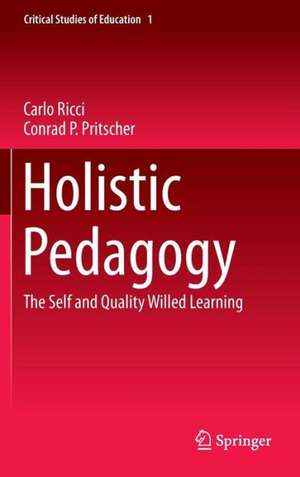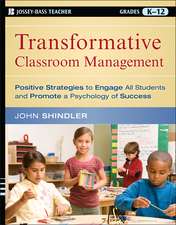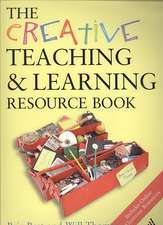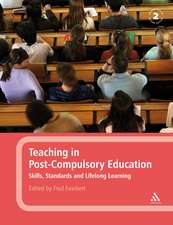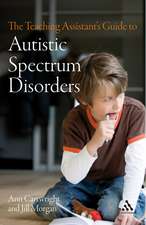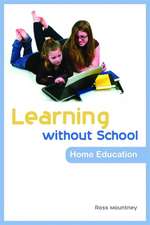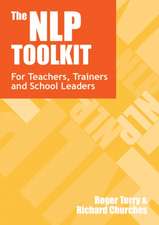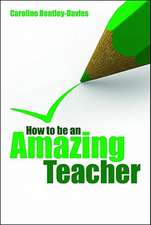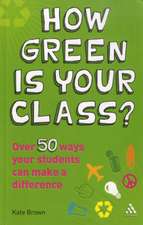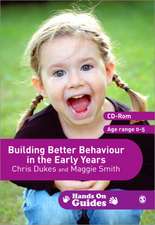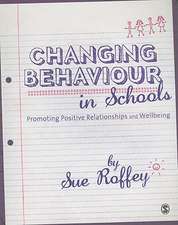Holistic Pedagogy: The Self and Quality Willed Learning: Critical Studies of Education, cartea 1
Autor Carlo Ricci, Conrad P. Pritscheren Limba Engleză Hardback – 25 mar 2015
| Toate formatele și edițiile | Preț | Express |
|---|---|---|
| Paperback (1) | 385.08 lei 43-57 zile | |
| Springer International Publishing – 6 oct 2016 | 385.08 lei 43-57 zile | |
| Hardback (1) | 392.37 lei 43-57 zile | |
| Springer International Publishing – 25 mar 2015 | 392.37 lei 43-57 zile |
Din seria Critical Studies of Education
- 24%
 Preț: 575.44 lei
Preț: 575.44 lei - 15%
 Preț: 642.03 lei
Preț: 642.03 lei - 18%
 Preț: 787.91 lei
Preț: 787.91 lei - 18%
 Preț: 998.51 lei
Preț: 998.51 lei - 18%
 Preț: 1002.31 lei
Preț: 1002.31 lei - 18%
 Preț: 892.74 lei
Preț: 892.74 lei - 15%
 Preț: 635.15 lei
Preț: 635.15 lei - 18%
 Preț: 723.24 lei
Preț: 723.24 lei - 18%
 Preț: 778.45 lei
Preț: 778.45 lei - 15%
 Preț: 639.90 lei
Preț: 639.90 lei - 15%
 Preț: 643.84 lei
Preț: 643.84 lei - 18%
 Preț: 730.47 lei
Preț: 730.47 lei -
 Preț: 389.49 lei
Preț: 389.49 lei -
 Preț: 389.11 lei
Preț: 389.11 lei -
 Preț: 390.63 lei
Preț: 390.63 lei - 18%
 Preț: 727.66 lei
Preț: 727.66 lei
Preț: 392.37 lei
Nou
Puncte Express: 589
Preț estimativ în valută:
75.08€ • 78.59$ • 62.49£
75.08€ • 78.59$ • 62.49£
Carte tipărită la comandă
Livrare economică 31 martie-14 aprilie
Preluare comenzi: 021 569.72.76
Specificații
ISBN-13: 9783319149431
ISBN-10: 3319149431
Pagini: 230
Ilustrații: XV, 226 p. 7 illus.
Dimensiuni: 155 x 235 x 20 mm
Greutate: 0.52 kg
Ediția:2015
Editura: Springer International Publishing
Colecția Springer
Seria Critical Studies of Education
Locul publicării:Cham, Switzerland
ISBN-10: 3319149431
Pagini: 230
Ilustrații: XV, 226 p. 7 illus.
Dimensiuni: 155 x 235 x 20 mm
Greutate: 0.52 kg
Ediția:2015
Editura: Springer International Publishing
Colecția Springer
Seria Critical Studies of Education
Locul publicării:Cham, Switzerland
Public țintă
ResearchCuprins
Chapter 1. Getting It - Evaluating Teachers and Learning.- Chapter 2. Another Major Problem. - Theories Are Not Physical.- Aspects of Science.- Chapter 3. The Process of Coming to Know. - What Is Evident About Evidence? Chapter 4. Structuring Learning.- Ordering.- The Study of Genes and Learning.- School Malpractice.- Chapter 5. Quality Learning and Productive Perplexity.- Between Specialization and Generalization.- Noticing Problems.- Gene Study and Schooling.- Resiliency.- The Power of Self-determined Neuroplasticity.- Chapter 6. Throwing Tea in Schooling’s Harbor.- The Content of Processing and the Processing of Content.- Chapter 7. Instructions for Instructing.- A Kind of Schooling: A Kind School.- Alexander Inglis as a Continual Problem.- Chapter 8. Quality Teaching and Uncommon Ways.- Measuring the Process of Measuring.- Quality Teaching and Effective Teaching.- Quality Learning and Abstractions.- Chapter 9. “It” Is Difficult To Say.- Words and Quality Learning.- Explaining Quality Learning.- The Teacher: Not the Subject.- Quality Willed Learning and Present Experience.
Textul de pe ultima copertă
This book illuminates what must always be at the heart of powerful schooling and authentic learning. Its focus is on free learning, with an emphasis on early East Asian thought as a vehicle through which learning may emerge. The volume describes learning as helping the learner become more conscious, more aware. As such the authors explain how quality learning encompasses all learning that is chosen by the learner. It is non-judgmental and their idea is that if learning is done by choice then direct harm will be mitigated because quality, willed learning is not just about the individual, but includes others — it is community focused as well as self-determined. In the first part of the volume the authors look specifically at how quality willed learning can inform the state and how it can protect the rights of children. The second part looks at what quality willed learning can mean to leaders. In the last part the authors look at what it can mean for teachers and finally what it can meanfor the learners themselves.
Caracteristici
Describes the best way to quality learning through willed learning Takes a learner centered democratic worldview Emphasizes early East Asian thought as a vehicle through which learning may emerge
